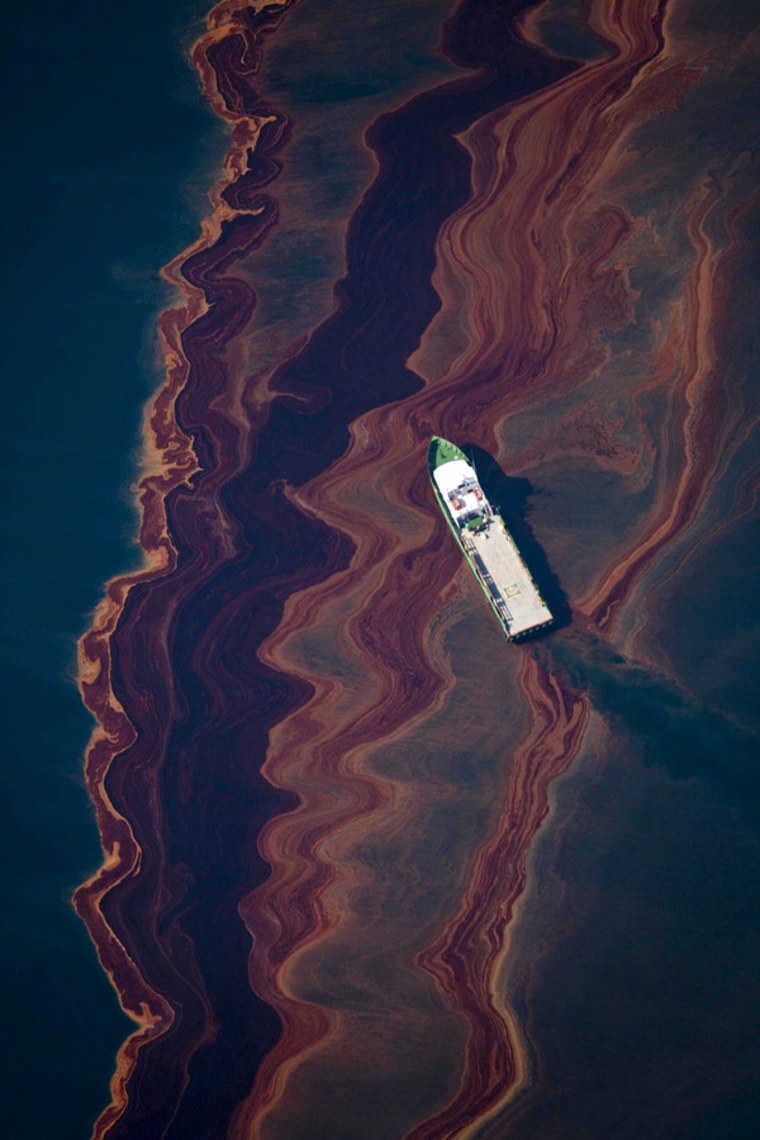Last night, after weeks of unflattering coverage from us of his department, the head of the government agency that gives out deepwater drilling permits in the Gulf of Mexico appeared on our show. Michael Bromwich answered questions about why the Bureau of Ocean and Energy Management, Regulation and Enforcement has continued to issue permits even after the agency posted a report showing that blowout preventers may need to be redesigned. Mr. Bromwich permitted another well after Interior Secretary Ken Salazar said the government plans new and better regulations for the blowout preventers at some point in the future.
Afterward, Rachel closed by saying she'd expected a very different kind of resolution from the interview. "I have never been more freaked out about this story and those permits than I am now after talking to him," she said. "Wow." Key sections below, full video after the jump.
On the new caps for undersea spills, which for BP's disaster were 87 days in coming:
MADDOW: This week, Helix revealed themselves that by their own assessment, it could take them 17 days to contain a spill. Seventeen days is the new fast response that we're supposed to feel better about in terms of containing a disaster that has already happened. That to me that doesn't feel like a great advance that would justify the type of rash issuing of permits that you've just done over the last 33 days.BROMWICH: Well, these haven't been the rash issuance of permits, as I said. We issued none until the latter part of February. We were strongly criticized for dragging our heels on not issuing any permits for several months after the lifting of the deepwater drilling moratorium which actually lifted in October, not in February. And the reason we didn't was because the containment capabilities were not yet ready.You're right, 17 days is not fabulous, but 17 days is a lot better than 87 days --MADDOW: Wow.
On new regulations for blowout preventers:
MADDOW: The rule-making process for these new rules is going to start in the next few months which would seem to be an acknowledgement that the standards now are too lax and they need to get tougher.If so, why give out permits now before the new rules are in place?BROMWICH: Well, you can always improve the equipment that's being used but you -- that doesn't mean that you bring activities to a standstill until you can enhance those rules. I understand you've used the airbag metaphor in some of your program on this.For a long time, air bags could not deal with side impacts. Did that mean that we pulled off all the cars off the road? Pending getting better airbags? No, it didn't.That would have been a silly way to proceed. By the same token, we feel comfortable that with all the new safety regulations, the containment capabilities and the new testing and certification requirements for blowout preventers, we're in a much different and much better position now than we were back in April, even with respect to blowout preventers.So, I think there is an insufficient basis for saying let's stop things in their tracks for the one or two years that it takes to develop better blowout preventer rules. I think that that would be a huge mistake and would be contrary to the best interests of this country.
On the safety of oil workers:
MADDOW: The president stopped permits being issued because he said that we would need to be sure that this would never happen again before we started giving those permits out again. The president's oil spill commission released its report on the BP disaster. One of the things they found was that an oil rig worker was four times more likely to be killed working in U.S. waters than in European waters, even though many of the same companies operate in both areas.Do you have any explanation for that?BROMWICH: Do you have any explanation for what? For the higher incidence of fatalities here?MADDOW: Yes.BROMWICH: No. No, I don't.MADDOW: No? And that hasn't been figured out.BROMWICH: No.
